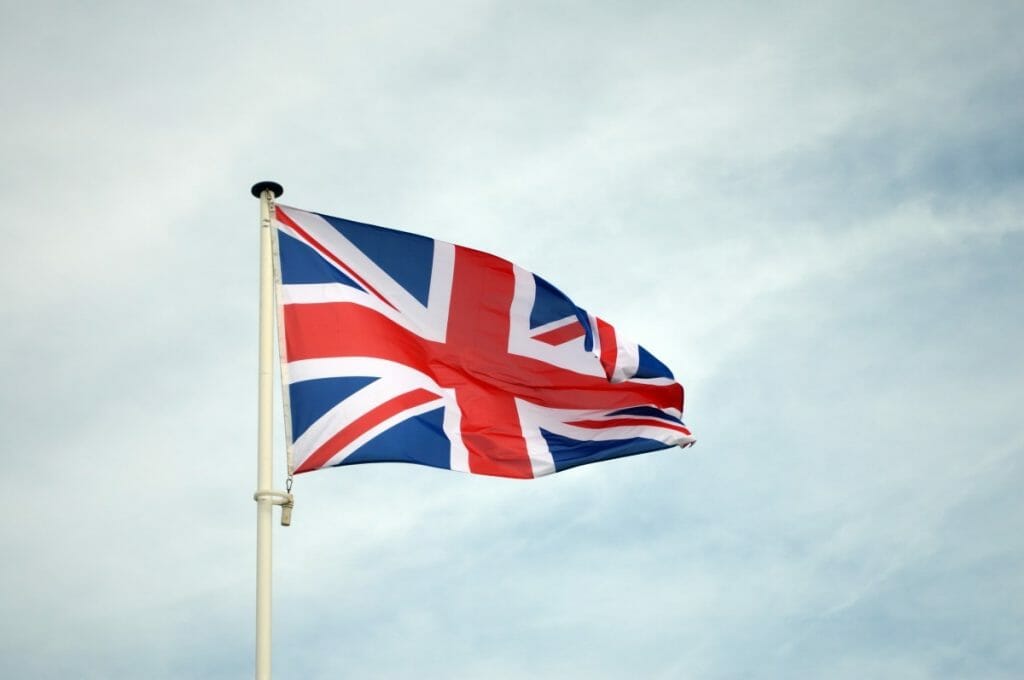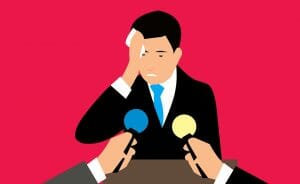Annales 2018 – Sujet : France métropolitaine – CORRECTION
COMPREHENSION ECRITE
Avant toute chose, voici l’intégralité du sujet du bac d’anglais LV1 2018 ainsi que les repérages essentiels à faire avant de répondre aux différentes questions :
Document A du bac d’anglais LV1 2018
What is it? C’est visiblement l’extrait d’un récit, à la troisième personne du singulier (“he“), intitulé John Henry Days et écrit par (“by“) Colson Whitehead
N’oublie pas de répondre aux 4 WH- avec systématiquement les numéros de ligne associés à la citation choisie.
WHO?
Paratexte : “Alphonse remembers going to a stamp collectors’ market“
“He buried himself” l.1
“He found his first railroad stamp” l.3
“He couldn’t stop his finger from running over its rough skin” l.5-6
“for Alphonse this was true craftsmanship” l.13
“he filled albums and albums with stamps from around the world” l.16-17
“he didn’t notice when he started collecting the stamps of dead places” l.19
“he collected it all” l.27
Le personnage s’appelle Alphonse et il se souvient être allé à un marché de collecteurs de timbres avant de devenir lui-même collectionneur de timbres.
WHEN?
Dans le passé (preterit + “remembers” dans le paratexte)
WHERE?
“a stamp collectors’ market“
“every place on the globe” l.17 / “Old Brighton Terminal” l. 20 sont deux exemples de lieux représentés sur ses timbres
Pas plus de précision sur le lieu du récit.
WHAT?
On comprend que le texte raconte l’histoire d’Alphonse qui, plus jeune, a commencé une collection de timbres et il décrit son engouement initial pour les locomotives représentées sur les timbres.
DOCUMENT B du bac d’anglais LV1 2018
“A Canadian Pacific ticket envelope” (1955)
What is it? A ‘ticket envelope’ advertising a train.
WHO?
We see a family on the left.
WHERE?
Publicité pour le train qui montre le dôme panoramique (“scenic dome“) qui permet aux voyageurs de regarder le paysage canadien et ses montagnes (en arrière-plan).
WHEN?
1955 (paratexte)
WHAT?
“the world’s longest scenic dome ride”
“your choice of the only scenic dome trains across Canada“
Cette enveloppe fait la publicité d’un train canadien qui se revendique comme étant le plus long train panoramique du Canada
Document C du bac d’anglais LV1 2018
“California firm Hyperloop to test engine in Southern Nevada” – The Chicago Tribune, 8 Dec. 2015
What is it ? Excerpt from an article of the newspaper The Chicago Tribune.
Conseil de méthodologie : N’utilisez surtout pas ‘Extract‘ qui n’est pas le terme adapté quand on parle d’un extrait de document !
Who ?
- “Rob Lloyd, CEO of the Los-Angeles based company” l.8
- “Tesla and Space X billionaire Elon Musk” l.9-10
- “developers” l.13
- “passengers” l.14
- “R. John Hansman Jr., aeronautics and astronautics professor at the Massachusetts institute of technology” l.17-18
- “Major John Lee” l.27
When ?
- date de l’article: 8 Dec. 2015
- “in 2013” l.10
- “by 2020” l.25-26 => ‘by’ suivi d’une date signifie “d’ici…” = d’ici 2020
Where ?
- “California“
- “Southern Nevada” l.3
- “North Las Vegas” l.5
- “Los-Angeles based company” l.8
- “between Los Angeles and San Francisco” l.15
- “about 15 miles northeast of downtown Las Vegas” l.24
What ?
- “building a futuristic transportation system to one day zip people and packages at nearly the speed of sound announced Tuesday it is building a test facility in southern Nevada.” l.1-3
- “Developers envision transporting freight and passengers at speeds up to 750 mph – a pace that could cut the 400-mile trip between Los Angeles and San Francisco to less than an an hour.” l.13-15
Une entreprise basée à Los Angeles veut créer un mode de transport qui s’approche de la vitesse de la musique. Elle pourrait ainsi transporter des marchandises et des individus entre Los Angeles et San Francisco.
Les questions du bac d’anglais LV1 2018
Document A du bac d’anglais LV1 2018
A. True or false ? Justify each answer by quoting one element from the text.
1) The Atlanta Zephyr stamp was the beginning of a new collection.
TRUE “his first railroad stamp” l.3
2) This stamp was expensive.
FALSE “He busied himself in a dealer’s penny box, where they put all the dregs that no one wants, that have no value, where everything goes for a penny no matter what the postage declares” l.1-3
3) Alphonse was fascinated by this stamp.
TRUE “he couldn’t stop his finger from running over its rough skin.” l.5
to stop something from + ING= empêcher quelque chose de faire quelque chose
4) This stamp conveyed an impression of movement.
TRUE “He could feel the speed” l.6
B. The stamp Alphonse found looks like the first stamp (A) because we can see that a bit of the top left is missing, as said lines 5-6: “A nibble off the top left edge was missing” and he mentions steam: “witha little puff of steam” (l.8)
C. In this text, trains are connected to frontiers. (on commence par répéter la question pour être sûr d’être clair)
First metaphorically, as a frontier between the old world (without locomotives) and the new world, one of technology and progress.(ensuite, on donne la première réponse, qu’on justifie ensuite : )
This is suggested l.9 “departure from an old world and speed across the border into the new.”
(et finalement, on donne la seconde réponse suivie de sa justification) Secondly, they are also seen as crossing frontiers of different cultures, bridging the gap between cultures that never touched without them : “it crossed oceans and cultures.” l.18
Conseil de méthodologie :
- On répète la question
- On donne la première réponse
- On la justifie
- On donne la seconde réponse
- On la justifie
D. For Alphonse, these stamps symbolize endless possibilities (“Anything could be in those cars, anything he wanted” l.14) that are offered to him. Seeing these stamps make him believe that he could be traveling as well like the passengers on the trains.
He also emphasizes the artistic nature of these stamps that manage to convey an almost philosophical idea while being very small (“With a few simple strokes, with a few anonymous cars and one noble locomotive, the artist had composed the definition of dreaming.” l.12-14)
Mots clés utiles
- endless (= infini)
- to emphasize (= insister, souligner)
- to convey (= transmettre)
E. Alphonse does not consider himself an “outsider” because as a stamp collector, he understands their true value. He sees the beauty and the symbol conveyed by the stamps. He opposes himself to “outsiders” who view stamps as mere means of sending a letter.
Mots clés utiles
- Mere utilisé comme adjectif = un simple… => mere means = un simple moyen de…
- Means = moyen prend un S en anglais au singulier et au pluriel
F.
1) These stamps represent places that do not exist anymore (dead lines” / “defunct lines” / “extinct depots” l.21 /”towns failed” l.22 / “terminal shuts its doors” l.23)
2) These stamps symbolize two evolutions. The first one is positive : it is the end of the “old world” and the beginning of a new era of progress and of crossing oceans and frontiers. The second evolution is the opposite: stamps end up representing places that do not exist anymore and that have been replaced by motorways with cars replacing trains as the symbol of progress.
G. For Alphonse, these stamps are the last remnant of an era where trains were the utmost symbol of progress. Even though trains are less popular and less used than they used to, Alphonse’s collection becomes a tribute to the railway and a proof of their past importance.
Mots clés utiles
- utmost = (absolu / maximum)
- a tribute (= un hommage)
Document B
1) This document is made to be attractive first thanks to the superlative form that suggests this train is unique: (“longest” and “only“) but also thanks to the variety of fonts that are big and easily catch the eye.
A font (= une police d’écriture)
2) The picture on the left of the document also aims at attracting potential customers. The beautiful landscapes in the background and the smiling family seemingly very enthusiastic (the girl is pointing) to be on that train are two elements that gives a positive impression.
Mots clés utiles
To aim at + ING = viser à …
customer = client
3) Two types of travel experience are displayed in the document. The first one is a family experience: the happy family pictured on the left of the document makes it clear that the scenic dome is ideal for a family trip.
The second type of travel experience is one of a unique travel experience thanks to the glass dome and the very beautiful view it allows to contemplate, presented as something very original.
DOCUMENT C
I – 1)
| Year | Space | Distance | Speed | |
| Testing of the Hyperloop | X | North Las Vegas / Southern Nevada | 1 km | 335 mph (miles per hour) |
| Final project | 2020 | From Los Angeles to San Francisco | 400 miles | 750 mph |
2) This project is undeniably an innovation since it is the fastest means of transportation ever experimented. Indeed, the final speed objective is close to the speed of sound, which is as of yet unheard of.
Mots clés utiles
- Undeniably = indéniablement
- as of yet = jusqu’à présent
- unheard of = sans précédent (on en a jamais entendu parler, littéralement)
J. Picture C looks the most like what this concept should look like as suggested by “pressurized capsules would zoom” (l.11)
K. It is false. Indeed, someone compared this project with sending a man on the moon, and “called the challenges significant.” (l.20)
L. Mayor John Lee is excited about this project because such project will attract people and create jobs in the area. If people can go from Los Angeles to San Francisco in an hour, people will be able to move in his city to go work in the other and vice-versa.
M. The journalist considers that the Hyperloop is a visionary project because, firstly, he compares it to science-fiction (“a page from science-fiction” l.11). Secondly, he stresses the fact that this project will be almost the speed of sound, which is difficult to imagine and something that has never been done before (“of sound” l.2)
Expression écrite
E1. : Do you think that technical progress necessarily implies forgetting the past?
Conseils de méthodologie
Il faut faire un plan au brouillon. L’épreuve est courte donc 2 parties suffiront.
L’expression écrite doit se composer de deux parties visuellement (sauter au moins une ligne entre chaque partie), elles-mêmes composées de différentes idées.
On doit avoir une partie qui va dans le sens de la question (oui, le progrès technique suggère qu’on doit oublier le passé) – et ce sera le premier “bloc” de votre rédaction – et une partie qui nuance le propos (sans l’opposer complètement, car ce serait absurde de se contredire à 100%).
Donner un exemple concret à chacun de vos arguments.
1) on one hand, yes, technical progress implies forgetting the past because new things are presented and considered better than those of the pasts. We abandon the past to go towards the future.
2) on the other hand, the first document is clear: it is not about forgetting the past completely since we build monuments, collect memories and pay tribute to the past in the present.
Dans un sujet qui vous pose directement une question (do you think?), il ne faut pas hésiter à donner son avis, en utilisant “I”.
Mots-clés utiles
- I believe that : Je crois que)
I think that : Je pense que) - forward : en avant)
- backward : en arrière)
- to pay a tribute to : rendre hommage à)
Mots de liaison utiles
Even though : même si / bien que)
There is no denying that : on ne peut pas nier que)
Though it is true that : bien qu’il est vrai que)
E2. : Write Elon MUsk’s inauguration speech for the Hyperloop in 2020, in which he reminds the audience of the evolution of transport and explains his vision of the future.
Conseils de méthodologie :
Ne pas oublier la spécificité du discours: il faut s’adresser à un public.
Ne pas hésiter à utiliser les documents du corpus pour vous inspirer:
Utiliser le document A pour parler de l’évolution du transport, utiliser le document B pour célébrer la nouvelle technologie de l’Hyperloop et utiliser le document C pour présenter l’Hyperloop rapidement.
The speech should be divided as such:
- thanking the audience to show the corrector you know how specific a speech is
- talking about the different steps of the project (see document C)
- talking about what it will allow (see document C)
- talking about the evolution of transportation in general (see doc A and B)
- talking about his vision of the future: this is the biggest part. Talk about how you imagine the future (of transportation and in general).
E3. : Ken / Clara Jones, a collector, is asked to write an editorial for the magazine Collector’s Monthly
Write his / her article entitled “Celebrating things of the past”.
Conseil de méthodologie :
Ne pas oublier le support: il faut s’adresser à des lecteurs eux-aussi collecteurs d’objets divers.
Use document A as you already have the point of view of a collector. Show how someone can pay tribute to the past when being a collector. Divide your article into subparts: write why you collect whatever it is you collect, and then broaden your argument on reflecting how it is a celebration of the past.
E4. : Discuss the following statement by Elisha Cooper, an American writer and children’s books author “A train is a small world moving through a larger world”
First part: talk about document B to show that this statement is (at least in part) true. The family lives its life inside the train.
Talk about the fact that a train keeps you in a kind of “bubble”, where there is no service and where you have time to breathe and to think while looking out the window.
Second part : Qualify (= nuancer) using the fact that there is now Wifi in trains, that people keep working on their computer as if they had not left their workplace, etc.
Mots-clés utiles
- Isolated (= isolé)
- a break (= une pause)
- rightfully (= à raison)
- however (= cependant)
- to wonder (= se demander, s’interroger)
- fast (= rapide)
- laptop (= ordinateur portable)
- service (= du réseau)
- truly (= vraiment)
N’hésitez pas à faire cette annale avant de regarder le corrigé pour bien vous entraîner. Retenez bien les conseils de méthodologie et les mots de liaison, cela vous aidera beaucoup le jour J ! Et n’hésitez pas à regarder d’autres fiches notionnelles.











